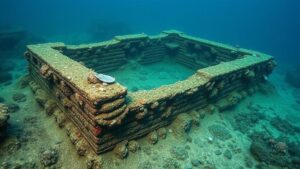Exploring connections between myths and historical events through archeology.
Exploring Connections Between Myths and Historical Events Through Archaeology
Myths and historical events have long been intertwined, shaping cultures and societies across the globe. Archaeology serves as a bridge between these two realms, providing evidence that can validate or challenge traditional narratives found in ancient tales. This article delves into the connections between myths and historical events, showcasing how archaeological discoveries illuminate the stories of our past.
The Role of Myths in Ancient Cultures
Myths often serve as foundational stories that encapsulate the values, beliefs, and struggles of a society. can offer insight into ancient peoples’ understanding of their environment, their gods, and their place in the world. For example, the Greek myth of Atlantis presents an idealized vision of a powerful civilization that disappeared, inspiring numerous endeavors to trace its historical origins.
Archaeology as the Key to Understanding
Archaeology provides the empirical data needed to investigate historical truths or dispel myths. By studying ancient artifacts, structures, and settlements, archaeologists can reconstruct past societies and their narratives. One notable example is the discovery of the Minoan civilization on the island of Crete, which has been linked to the myth of the Labyrinth and the Minotaur.
Case Study: The Flood Myth
The story of a great flood appears in many cultures, including the Mesopotamian Epic of Gilgamesh and the Biblical account of Noahs Ark. Archaeological research in the region surrounding the Black Sea has suggested that a significant flood event did occur around 5600 BCE, potentially influencing these flood myths. The findings of submerged settlements provide a compelling historical context that parallels these ancient narratives.
Case Study: Troy and the Trojan War
The tale of the Trojan War, as recounted in Homers Iliad, was deemed a myth for centuries until Heinrich Schliemanns excavations in the 19th century revealed the ruins of a city believed to be Troy in modern-day Turkey. Schliemanns findings included evidence of multiple layers of settlement, suggesting that the events reflected in the epic may have roots in historical conflicts during the Late Bronze Age (around 1200 BCE).
The Significance of Historical Evidence
While myths often contain embellishments or entirely fictional elements, archaeology has the power to provide historical evidence that contextualizes these stories. For example, the discovery of ancient temples and inscriptions in South America has led researchers to investigate the historical basis of the Inca creation myths, which emphasize the connection between their rulers and divine ancestry.
Challenges and Controversies
But, the intersection of myths and archaeology is not without its challenges. Some scholars argue that attempting to correlate archaeological evidence with myths can lead to misinterpretations or reinforce biases. Sinking of Atlantis, for example, has sparked numerous speculative theories despite a lack of conclusive archaeological evidence. Researchers must tread carefully to avoid conflating myth with historical fact.
Real-World Applications of Archaeological Discoveries
The implications of linking myths and historical facts extend beyond academic inquiry. For example, understanding the historicity of myths can impact cultural heritage and tourism. Sites associated with myths, such as the ruins of Palmyra in Syria, draw tourists and researchers alike, stimulating local economies while posing preservation challenges.
Conclusion: Bridging the Gap Between Myths and History
The dance between mythology and archaeology reveals a captivating story of humanity’s quest for understanding. As archaeological techniques advance and more discoveries are made, the clarity of the connections between myths and historical events will continue to evolve. A balanced approach that respects both the cultural significance of myths and the rigorous data provided by archaeology will enrich our comprehension of human history.
Actionable Takeaways:
- Consider how myths can reflect historical realities when studying ancient cultures.
- Stay informed about recent archaeological discoveries and their interpretations.
- Engage with multidisciplinary perspectives that appreciate both mythologies and historical evidence.


